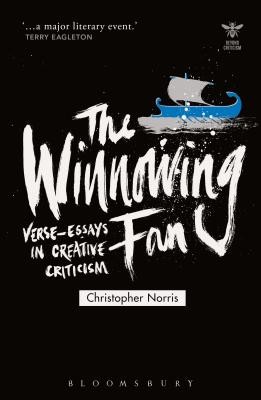
- We will send in 10–14 business days.
- Author: Christopher Norris
- Publisher: Bloomsbury Publishing PLC
- ISBN-10: 1350107301
- ISBN-13: 9781350107304
- Format: 12.7 x 20.3 x 1.8 cm, minkšti viršeliai
- Language: English
- SAVE -10% with code: EXTRA
Reviews
Description
This path-breaking book explores different ways in which writing about poetry can deepen and extend our critical engagement by deploying creatively the manifold resources of poetic language and form. Through a series of verse-essays, reflective monologues, and inventive variations on topics in literary theory The Winnowing Fan makes a strong case for revising received ideas about the scope and limits of criticism.
Norris's poems traverse the full range of European poetic history from Homer's Odyssey, through the work of French symbolists such as Mallarmé, to modern writers such as Yeats, Benjamin, Heaney, Larkin, and Barthes. There are also verse-essays and shorter pieces on philosophers from Hume and Leibniz to Heidegger, Althusser, Derrida, de Man, Rorty, Deleuze, Badiou, and Agamben. In each case Norris seeks to free criticism from conventional academic forms and return it to an active mutual engagement with the practice of literature itself.
EXTRA 10 % discount with code: EXTRA
The promotion ends in 23d.15:02:10
The discount code is valid when purchasing from 10 €. Discounts do not stack.
- Author: Christopher Norris
- Publisher: Bloomsbury Publishing PLC
- ISBN-10: 1350107301
- ISBN-13: 9781350107304
- Format: 12.7 x 20.3 x 1.8 cm, minkšti viršeliai
- Language: English English
This path-breaking book explores different ways in which writing about poetry can deepen and extend our critical engagement by deploying creatively the manifold resources of poetic language and form. Through a series of verse-essays, reflective monologues, and inventive variations on topics in literary theory The Winnowing Fan makes a strong case for revising received ideas about the scope and limits of criticism.
Norris's poems traverse the full range of European poetic history from Homer's Odyssey, through the work of French symbolists such as Mallarmé, to modern writers such as Yeats, Benjamin, Heaney, Larkin, and Barthes. There are also verse-essays and shorter pieces on philosophers from Hume and Leibniz to Heidegger, Althusser, Derrida, de Man, Rorty, Deleuze, Badiou, and Agamben. In each case Norris seeks to free criticism from conventional academic forms and return it to an active mutual engagement with the practice of literature itself.


Reviews